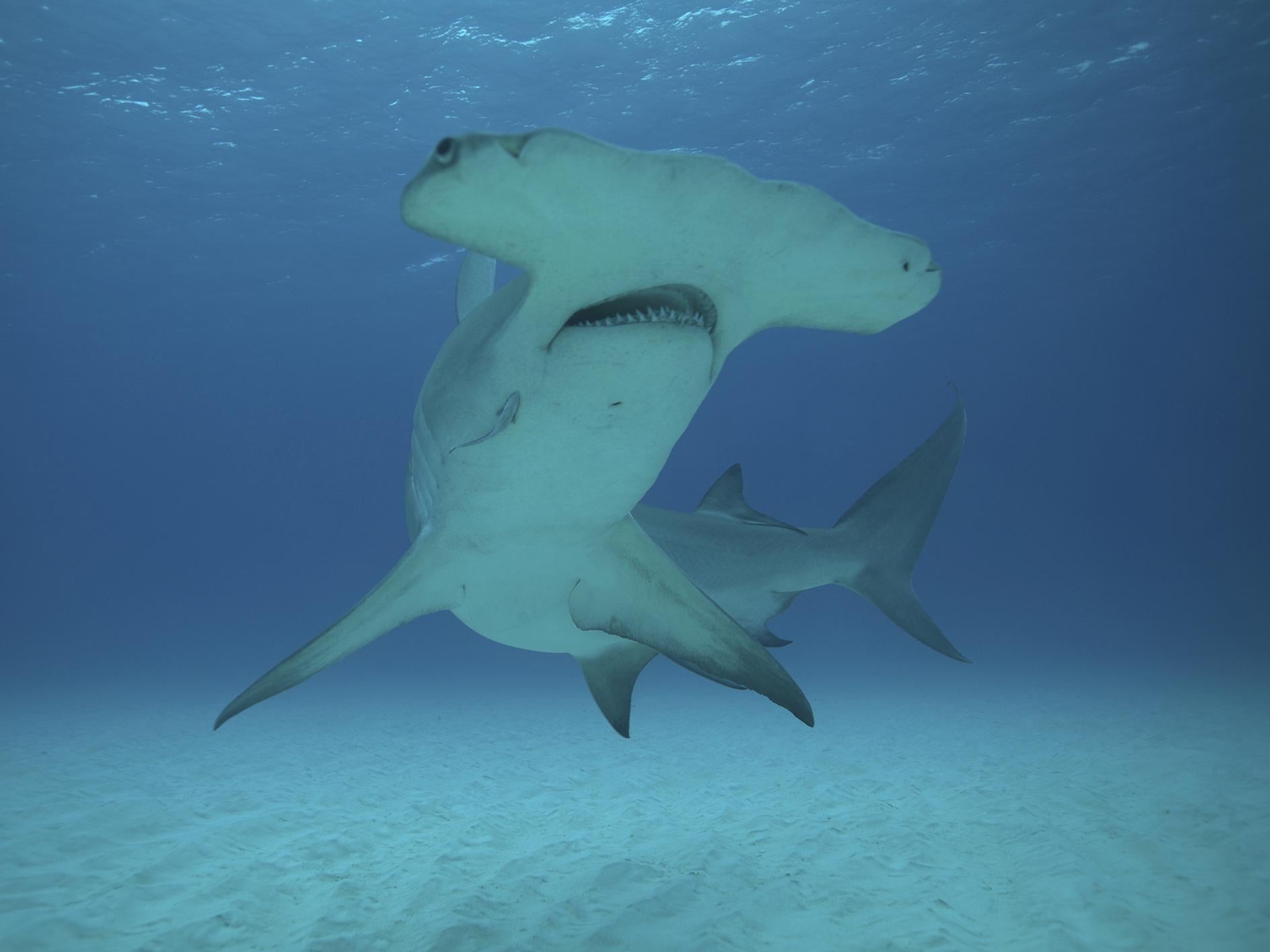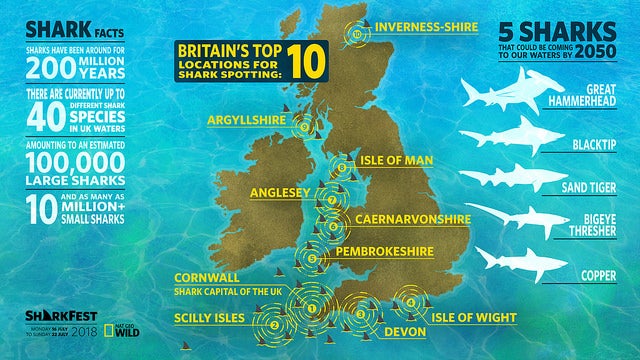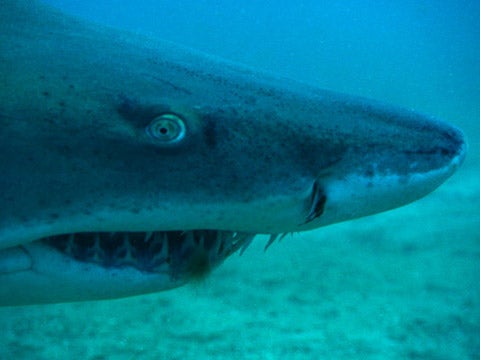Exotic sharks could migrate to British waters in coming decades due to climate change
Warming oceans mean large species such as hammerheads are likely to make their way north from the Mediterranean and Spanish coast

Your support helps us to tell the story
From reproductive rights to climate change to Big Tech, The Independent is on the ground when the story is developing. Whether it's investigating the financials of Elon Musk's pro-Trump PAC or producing our latest documentary, 'The A Word', which shines a light on the American women fighting for reproductive rights, we know how important it is to parse out the facts from the messaging.
At such a critical moment in US history, we need reporters on the ground. Your donation allows us to keep sending journalists to speak to both sides of the story.
The Independent is trusted by Americans across the entire political spectrum. And unlike many other quality news outlets, we choose not to lock Americans out of our reporting and analysis with paywalls. We believe quality journalism should be available to everyone, paid for by those who can afford it.
Your support makes all the difference.Great white sharks could soon be swimming in British waters as rising ocean temperatures allow southern species to venture north for the first time.
In the coming decades, species that have previously been restricted to warmer waters will be found cruising around Cornwall and the Isle of Wight, according to a top shark tracking expert.
Those species could include large sharks such as hammerheads, blacktips and great whites.
There are currently around over 10 million small sharks and 100,000 larger sharks in British waters, with around 40 different species in total.
This number is expected to increase within the next 30 years as varieties that normally live in the Mediterranean and off the coasts of Spain and Portugal find their way into British territory.

However, even as foreign species move in, natives such as basking sharks are in decline as fishing, plastic pollution and climate change place them under increasing pressure.
Ten new shark species that could inhabit British waters by 2050
• Great hammerhead
• Blacktip shark
• Sand tiger or spotted raggedtooth shark
• Bigeye thresher
• Longfin mako
• Bronze whaler or copper shark
• Oceanic whitetip shark
• Silky shark
• Dusky shark
• Goblin shark
Dr Ken Collins from the University of Southampton, a former administrator of the UK Shark Tagging Programme, said this means that while diversity may increase, the overall number of British sharks may still decline.
“We will increase from 40 species to maybe 60, but there will still be less of them – and some of the existing ones will maybe go extinct in the meantime,” he told The Independent.
“They are getting rarer and rarer – and it’s the big sharks that have the problem because people target them.”
Larger sharks are often unintentionally caught by the tuna fishing industry, and many large species are specifically targeted in fisheries around the world.
Sharks are particularly threatened because it takes them so long to replenish their numbers.

“Sharks are very slow to reproduce; a typical female shark will have to get to 10 years old before it produces one or two young,” said Dr Collins.
“With cod, they reproduce every year and produce one million eggs.”
To identify the future shark demographics of the UK, Dr Collins was commissioned by Nat Geo WILD to produce a “shark map of Britain”.
While he identified shark hotspots from the Scilly Isles to Argyllshire, Cornwall was described as the “shark capital of the UK” with at least 20 species found off its coast.
As for perhaps the most feared shark species, the great white, Dr Collins said he saw “no reason why” these creatures would not find their way to British waters.
“They live in colder waters off South Africa and have a favourite food source – seals along the Cornish coast,” he said.
“The only argument against there being great white sharks in our waters is that numbers worldwide are declining so the chances of seeing one around the UK fall year by year.”

The recent sighting of a five metre-long shark in Spanish waters was hailed as “historic” when experts suggested it was the first great white in the region for at least three decades.
Despite many people’s prejudice against larger shark species, Dr Collins said the British public had nothing to fear from the arrival of new species in their waters, and warned of the harm anti-shark sentiment has caused to these large fish around the world.
Ali Hood, director of conservation at the Shark Trust, agreed with this sentiment, explaining that “sharks have long been the subject of fake news, with media coverage often driving sensationalist interests, feeding the darkest parts of the human psyche and fuelling concerns that the ocean is teeming with ‘man-eating monsters’”.
However, she said she was concerned that these predictions added “fuel to the fire” as they presented “informal future gazing as hard fact”.
“With many shark species caught with ‘no limits’, and 45 per cent of sharks and rays considered as data deficient by the IUCN Red List of Threatened Species, the trust would urge closer inspection of those sharks and rays that do inhabit our waters, the genuine threats they face – be it climate change, pollution or overfishing – and practical solutions to safeguard their future as integral parts of our marine diversity.”
Nat Geo WILD’s week-long Sharkfest series runs until Sunday 22 July
Join our commenting forum
Join thought-provoking conversations, follow other Independent readers and see their replies
Comments